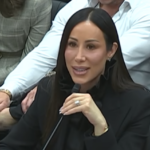
George Washington University Law School professor Jonathan Turley found the Supreme Court’s 6-3 decision in the presidential immunity case Monday to be “very good” for former President Donald Trump.
“In reading through this opinion, I can’t see how this doesn’t induce cardiac arrest for the special counsel,” Turley told Fox News.
“Here the court is imposing a very significant burden on Jack Smith when this goes back to the judge,” he added. “The court here is giving much more clear lines than some people expected.”
Chief Justice John Robert wrote in the majority opinion, the president “is entitled to at least presumptive immunity from prosecution for all his official acts. There is no immunity for unofficial acts.”
Turley highlighted how the Court fleshed that out when referring to Smith’s indictment charging Trump with interfering in the 2020 general election by pressuring then-Vice President Mike Pence, in his role as president of the Senate, not to certify the Electoral College vote.
Jonathan Turley reads through SCOTUS’ ruling affirming presidential immunity:
“In reading through this opinion, I can’t see how this doesn’t induce cardiac arrest in the special counsel…The court is imposing a very significant burden on Jack Smith when this goes back to the… pic.twitter.com/mYSoEqqC44
— Charlie Kirk (@charliekirk11) July 1, 2024
“The indictment’s allegations that Trump attempted to pressure the Vice President to take particular acts in connection with his role at the certification proceeding thus involve official conduct, and Trump is at least presumptively immune from prosecution for such conduct,” the Court said.
Trump wanted the state legislatures in some states with close election results to conduct a further review for fraud. He argued that mass mail-in voting adopted in some states — like Pennsylvania, Georgia, Wisconsin and Michigan — during the pandemic without legislative approval potentially undermined the integrity of the election.
Do you think Trump will win in November?
Yes: 100% (5 Votes)
No: 0% (0 Votes)
The Court explained the president may frequently have conversations with the vice president regarding votes that occur in the Senate, particularly when the chamber is closely divided by party, because the vice president may be called upon to cast the tie-breaking vote on legislation.
“Applying a criminal prohibition to the President’s conversations discussing such matters with the Vice President — even though they concern his role as President of the Senate — may well hinder the President’s ability to perform his constitutional functions,” the opinion stated.
The court concluded, “It is ultimately the Government’s burden to rebut the presumption of immunity. We therefore remand to the District Court to assess in the first instance, with appropriate input from the parties, whether a prosecution involving Trump’s alleged attempts to influence the Vice President’s oversight of the certification proceeding in his capacity as President of the Senate would pose any dangers of intrusion.”
Turley expounded, “This case is going to have to go back to the district court, which is going to have to try to thread this needle to determine what in the case would not fall under these protections.”
“But this is obviously a win for President Trump in the sense that the special counsel was arguing, as with the lower court, that there was very little immunity here to be concerned with,” he added, noting the scope of immunity is much broader than Smith had contended.
Turley’s overall assessment was, “This is a very good day for the former president. This opinion is quite favorable on most points.”
Justice Sonia Sotomayor, joined by Justices Elena Kagan and Ketanji Brown Jackson, wrote in a dissent that the majority’s decision “makes a mockery of the principle, foundational to our Constitution and system of Government, that no man is above the law.”
The justice argued that by the majority’s reasoning presidents would be immune if they chose to assassinate their political rival, take a bribe in exchange for a pardon, or organized the military to engage in a coup.
Impeachment would be a remedy in these situations, and criminal prosecution could follow, even if the impeachment is not successful, the majority stated.
The Court cited Alexander Hamilton in The Federalist No. 69 and No. 77, arguing this is the case.
The majority characterized Sotomayor’s of the president now being above the law as “fear mongering.”
“The dissents’ positions in the end boil down to ignoring the Constitution’s separation of powers and the Court’s precedent and instead fear mongering on the basis of extreme hypotheticals about a future where the President ‘feels empowered to violate federal criminal law,’” the Court wrote.
“The dissents overlook the more likely prospect of an Executive Branch that cannibalizes itself, with each successive President free to prosecute his predecessors, yet unable to boldly and fearlessly carry out his duties for fear that he may be next. For instance, Section 371 — which has been charged in this case — is a broadly worded criminal statute that can cover ‘any conspiracy for the purpose of impairing, obstructing or defeating the lawful function of any department of Government.’”
Trump responded to Monday’s ruling in a statement to Fox News, saying, “I have been harassed by the Democrat Party, Joe Biden, Obama and their thugs, fascists, and communists for years, and now the courts have spoken.”
“This is a big win for our Constitution and for democracy,” he continued. “Now I am free to campaign like anyone else. We are leading in every poll — by a lot — and we will make America great again.”







